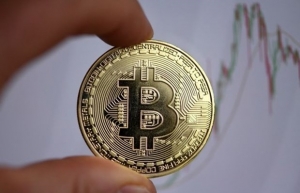The path to managing cryptoasset landscape
Vietnam has seen a remarkable surge in the adoption of cryptoassets over the past few years. It ranks third globally in cryptocurrency owners, following India and the United States, with nearly 26 million people owning digital currencies, according to Crypto Crunch App. In 2023, a report by Chainalysis highlighted that Vietnam ranked third in estimated cryptocurrency gains by country, with approximately $1.18 billion in estimated gains.
 |
| Dr. Nguyen Nhat Minh and Dr. Thai Trung Hieu, lecturers of Blockchain Enabled Business at RMIT University |
A significant trend is the growing interest in decentralised finance and non-fungible tokens (NFTs). These innovations attract investors, creators, and entrepreneurs leveraging blockchain technology for new business models. For instance, Chainalysis suggests that play-to-earn gaming and NFTs are significant drivers of Vietnam’s crypto interest.
The demographic profile of crypto users in Vietnam is diverse, including young professionals, tech enthusiasts, and small business owners seeking alternative investments.
Vietnamese tech companies and startups are at the forefront of cryptoasset innovation, offering solutions that enhance transaction efficiency and security. These advancements position Vietnam as a regional leader in blockchain technology and foster a vibrant ecosystem of innovation.
The crypto market has become a significant income source, contributing to job creation and business opportunities. Furthermore, cryptoassets have the potential to enhance financial inclusion by providing access to financial services for the unbanked population, leading to greater economic participation and improved living standards.
Despite these promising developments, the cryptoasset landscape in Vietnam faces challenges. Security issues, including fraud and hacking incidents, remain a significant concern and undermine investor confidence. Market volatility also poses risks, with drastic price fluctuations potentially leading to substantial financial losses.
Necessity of regulations
Vietnam’s regulatory framework for cryptoassets is still in its nascent stages. Digital assets present unprecedented challenges, not only for Vietnam but for countries worldwide. Currently, Vietnamese law does not recognise ownership rights over digital assets. Despite this, trading and mining of digital assets continue to thrive, driven by the robust development of the Fourth Industrial Revolution.
This regulatory gap creates an uncertain environment for investors and businesses, potentially stifling innovation and growth. The unregulated nature of the crypto market in Vietnam exposes investors to significant risks, including fraud, market manipulation, and security breaches.
As more people are interested in owning and investing in digital assets, there is an urgent need for regulations that protect consumers and ensure transparency in the market. This includes measures to prevent deceptive practices and safeguard against cyber threats. Implementing robust consumer protection regulations can build investor confidence and encourage more widespread participation in the crypto market.
Unregulated crypto markets can also pose threats to the broader financial stability of Vietnam. Without proper oversight, there is a risk of financial crimes such as money laundering and terrorism financing. Regulations are essential to maintain market integrity and prevent such illicit activities. Ensuring financial stability involves creating a regulatory environment that balances the benefits of cryptoassets with the need to protect the financial system from potential disruptions.
Besides the lack of regulations to mitigate risks, the rapid development of technology today also demands regulations to foster a conducive environment for innovation in the digital economy. To encourage the growth of blockchain technology and cryptoasset markets, it is essential to provide clear guidelines and support to create a healthy and fair playing field for businesses.
This can further attract foreign investment and support local startups, driving economic growth and technological advancement.
 |
| Photo: Shutterstock |
Primary approaches to regulation
There are some key areas of interest in global practices regarding cryptoasset regulation, with the first being enhanced regulatory frameworks for investor protection. As cryptocurrency investment grows, robust regulatory frameworks are essential for protecting investors. In general, enhanced regulations ensure transparency, mitigate risks, and prevent fraud in the digital asset market.
By fostering a secure and stable environment, these measures bolster investor confidence and support the sustainable growth of the cryptocurrency industry.
In 2018, Hong Kong established one of its first comprehensive regulatory regimes for cryptoassets, setting new standards for fund managers, distributors, and platform operators. This regime addresses regulatory gaps and arbitrage issues from the previous framework, significantly enhancing investor protection.
When compared with the regulatory approaches of the US, the UK, and Singapore, Hong Kong’s regime is significant. However, concerns remain, particularly regarding the regulatory scope, the application of traditional standards to non-securities cryptoassets, issues with the sandbox mechanism, and the need to balance investor protection with market development.
In the same fashion, Japanese regulation mandates that any entity wishing to provide cryptoasset exchange services to Japanese residents must register as a cryptoasset exchange provider. The primary objectives of this regulation are to protect investors and customers of cryptoasset exchanges and to prevent cryptoasset-related terrorist financing and money laundering. This framework ensures that exchanges operate transparently and securely, safeguarding investor interests and maintaining the integrity of the financial system.
The second area involves integration of cryptoassets into traditional financial regulations. One straightforward approach to addressing regulatory issues for cryptocurrencies is integrating them into traditional financial regulation. This integration aims to bring the benefits of cryptocurrencies, such as efficiency and innovation, into the established financial system while ensuring stability, security, and compliance.
By adapting existing regulations to accommodate digital currencies, authorities can address risks like fraud and volatility, fostering a safer and more transparent market.
Among several challenges of this integration is understanding the relationship between cryptocurrencies and securities. Securities law is essential for ensuring transparency, fairness, and integrity in capital markets. It governs the issuance, trading, and disclosure of financial instruments like stocks and bonds, aiming to protect investors, promote efficient markets, and facilitate capital formation.
However, whether cryptocurrencies could be seen as securities remains a subject of debate among global financial organisations and the cryptocurrency industry.
While several financial organisations argue that digital coins should be classified as securities, many leaders in the industry disagree, asserting that cryptocurrencies might differ from securities as they often serve as utility tokens, operate on decentralised networks, and offer global, inclusive financial access. Classifying them as securities could stifle innovation, create regulatory confusion, and impose restrictive frameworks not suited to their unique nature and purpose.
The final factor is balancing innovation and regulation, as excessive regulation could cause negative consequences. For example, there are debates saying that the US Securities and Exchange Commission seems not to meet its core mission of protecting investors, maintaining efficient markets, and facilitating capital formation.
Rather, its enforcement of pre-digital-asset laws has led to inadequate compliance and higher capital costs for crypto-issuers, ultimately harming the market and its participants.
Based on the current cryptocurrency market in Vietnam, it is recommended to address two key regulatory issues: protecting investors and users, and establishing balanced regulations that promote industry growth and innovation. Achieving an equilibrium between innovation and regulation is essential to create an environment where new ideas can thrive without compromising consumer protection and ethical standards.
 | Cryptocurrency is not banned in Vietnam: Ministry Cryptocurrency is not banned in Vietnam but it is necessary to develop a legal framework to ensure its on-track development and prevent risks, a representative from the Ministry of Justice has said. |
What the stars mean:
★ Poor ★ ★ Promising ★★★ Good ★★★★ Very good ★★★★★ Exceptional
Related Contents
Latest News
More News
- SK Innovation-led consortium wins $2.3 billion LNG project in Nghe An (February 25, 2026 | 07:56)
- THACO opens $70 million manufacturing complex in Danang (February 25, 2026 | 07:54)
- Phu Quoc International Airport expansion approved to meet rising demand (February 24, 2026 | 10:00)
- Bac Giang International Logistics Centre faces land clearance barrier (February 24, 2026 | 08:00)
- Bright prospects abound in European investment (February 19, 2026 | 20:27)
- Internal strengths attest to commitment to progress (February 19, 2026 | 20:13)
- Vietnam, New Zealand seek level-up in ties (February 19, 2026 | 18:06)
- Untapped potential in relations with Indonesia (February 19, 2026 | 17:56)
- German strengths match Vietnamese aspirations (February 19, 2026 | 17:40)
- Kim Long Motor and AOJ Suzhou enter strategic partnership (February 16, 2026 | 13:27)

 Tag:
Tag:




















 Mobile Version
Mobile Version